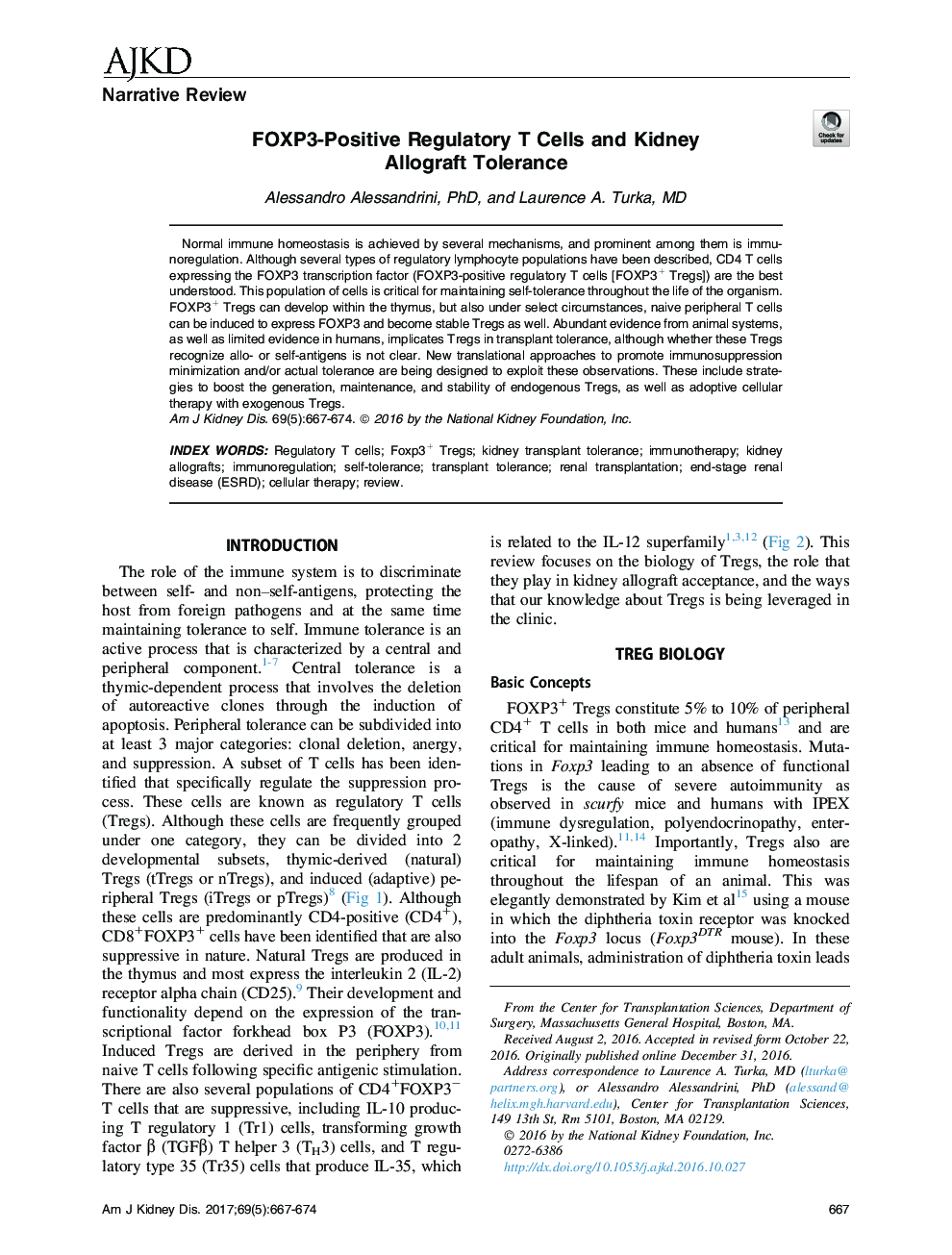| Article ID | Journal | Published Year | Pages | File Type |
|---|---|---|---|---|
| 5685523 | American Journal of Kidney Diseases | 2017 | 8 Pages |
Abstract
Normal immune homeostasis is achieved by several mechanisms, and prominent among them is immunoregulation. Although several types of regulatory lymphocyte populations have been described, CD4 T cells expressing the FOXP3 transcription factor (FOXP3-positive regulatory T cells [FOXP3+ Tregs]) are the best understood. This population of cells is critical for maintaining self-tolerance throughout the life of the organism. FOXP3+ Tregs can develop within the thymus, but also under select circumstances, naive peripheral T cells can be induced to express FOXP3 and become stable Tregs as well. Abundant evidence from animal systems, as well as limited evidence in humans, implicates Tregs in transplant tolerance, although whether these Tregs recognize allo- or self-antigens is not clear. New translational approaches to promote immunosuppression minimization and/or actual tolerance are being designed to exploit these observations. These include strategies to boost the generation, maintenance, and stability of endogenous Tregs, as well as adoptive cellular therapy with exogenous Tregs.
Keywords
Related Topics
Health Sciences
Medicine and Dentistry
Nephrology
Authors
Alessandro PhD, Laurence A. MD,
